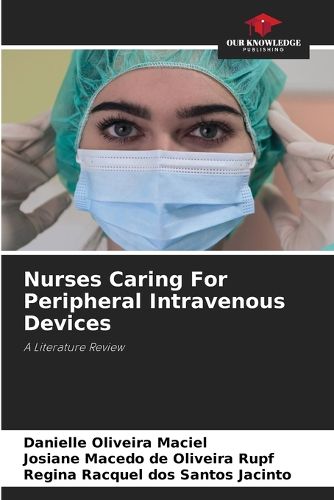Readings Newsletter
Become a Readings Member to make your shopping experience even easier.
Sign in or sign up for free!
You’re not far away from qualifying for FREE standard shipping within Australia
You’ve qualified for FREE standard shipping within Australia
The cart is loading…






This study examined the role of nurses in caring for peripheral intravenous devices (PIVDs), investigating practices, challenges and strategies to promote the safe and effective management of these devices. The literature review highlighted the importance of adhering to evidence-based protocols and guidelines, as well as the need for continuing education and adequate resources for nursing professionals. The results showed that clinical practice consistent with best practice can significantly reduce the risk of complications and improve the quality of patient care. However, challenges such as work overload and limited resources still represent obstacles to providing optimal care. It is suggested that future research focus on investigating new technologies and interventions to prevent complications, as well as exploring factors that influence nurses' adherence to best practices. This study contributes to the understanding of the critical role of nurses in the management of PIDs and highlights the continued need for investment in education, training and resources to promote safe and effective clinical practice.
$9.00 standard shipping within Australia
FREE standard shipping within Australia for orders over $100.00
Express & International shipping calculated at checkout
This study examined the role of nurses in caring for peripheral intravenous devices (PIVDs), investigating practices, challenges and strategies to promote the safe and effective management of these devices. The literature review highlighted the importance of adhering to evidence-based protocols and guidelines, as well as the need for continuing education and adequate resources for nursing professionals. The results showed that clinical practice consistent with best practice can significantly reduce the risk of complications and improve the quality of patient care. However, challenges such as work overload and limited resources still represent obstacles to providing optimal care. It is suggested that future research focus on investigating new technologies and interventions to prevent complications, as well as exploring factors that influence nurses' adherence to best practices. This study contributes to the understanding of the critical role of nurses in the management of PIDs and highlights the continued need for investment in education, training and resources to promote safe and effective clinical practice.